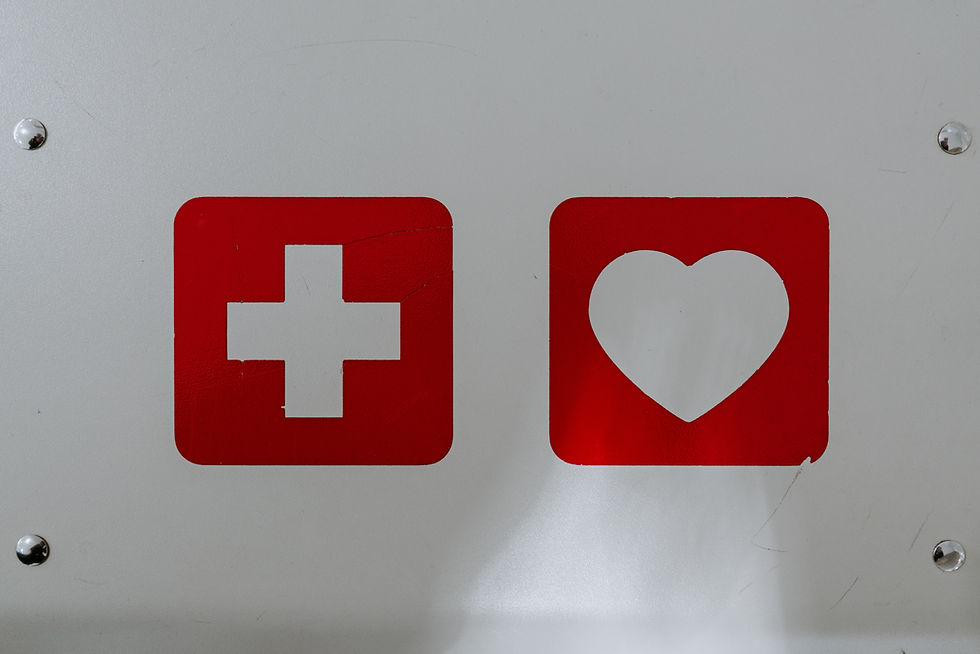Fruits and vegetables offer heart-healthy nutrients
- smorales418
- Jun 13, 2023
- 2 min read
Five fruits and vegetables is not enough for a healthy heart. The Dietary Approaches to Stop Hypertension (DASH) diet actually recommends 4-5 servings of fruit per day and 4-5 servings of vegetables per day. It’s one of the top rated heart healthy diets along with the Mediterranean diet that also recommends 9 servings of fruits and vegetables per day. The average American diet skips several beats, barely averaging just 2 ½ servings per day. So what’s inside fruits and vegetables that keep your arteries clear and flexible and hearts pumping strong?

Potassium. Avocados, bananas, broccoli, sweet cherries, kiwi, oranges, split peas, potatoes, spinach, sweet potatoes, tomatoes and dried fruit all contain 10-20% of your daily value for potassium. A diet high in these fruits and vegetables can lower your systolic blood pressure by up to 10 points in people with high blood pressure. Potassium helps your heart beat a hundred thousand times a day, squeezing oxygen and nutrient rich blood throughout your body. It also helps your nerves and muscles communicate so if you have heart rhythm problems, a potassium rich diet may help. Never take potassium pills unless your doctor recommends it.

Fiber. All fruits and vegetables are good sources of fiber. Fiber can reduce the absorption of cholesterol into the blood stream. Five to 10 grams of soluble fiber per day can lower your LDL cholesterol by 5 percent but 10-25 grams of soluble fiber per day is recommended according to the National Cholesterol Education Program. The average American diet is too low in fiber, meeting just over 50% of the recommendation.
Phytochemicals.
·Lycopene is found in tomatoes, pink grapefruit, red peppers and watermelon. There is some evidence that higher lycopene blood levels are associated with a reduced risk of hardening of the arteries also known as atherosclerosis.
·Anthocyanin’s occur naturally in blueberries, blackberries, plums, cranberries, raspberries, red onions, red potatoes, red radishes, red and purple grapes and strawberries. They protect the plant against environmental stress from the sun, cold temperatures and drought. When we consume anthocyanin rich fruits and vegetables, research shows we may have a decreased risk in developing hypertension and heart disease which may be in part due to their ability to reduce inflammation and make blood vessels less stiff.
·Sulforahane is found in broccoli, cabbage and cauliflower. Research shows that sulforahane increases antioxidant enzymes in our blood reducing cell damage and inflammation in our arteries.
Monounsaturated Fat. Avocado is rich in this “good” type of fat that helps lower bad LDL cholesterol causing plaque build up in the arteries. It’s also rich in potassium that helps lower blood pressure. Do keep in mind though that 1/5 of an avocado is the serving size and contains 50 calories. Ripening tip: to speed the ripening process, put them in a paper bag with a banana or an apple.
Many of the fruits and vegetables that are good for your heart are also good for your head, helping to keep your mind sharp as you age. In general, fruits and vegetables eaten raw with skins or lightly steamed retain the greatest heart and mind, healthy benefits. Visit your local farmers markets, go berry picking and don’t stop at 5 a day, aim for 9 a day!
Courtesy: Sheryl Lozicki, RD




Comments